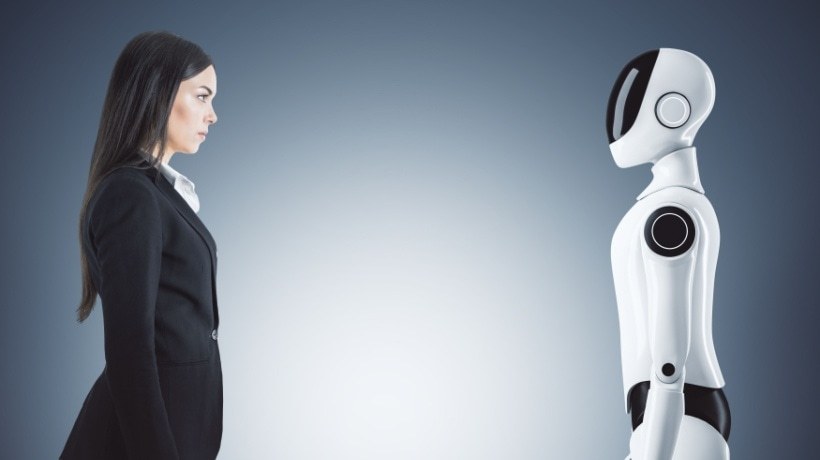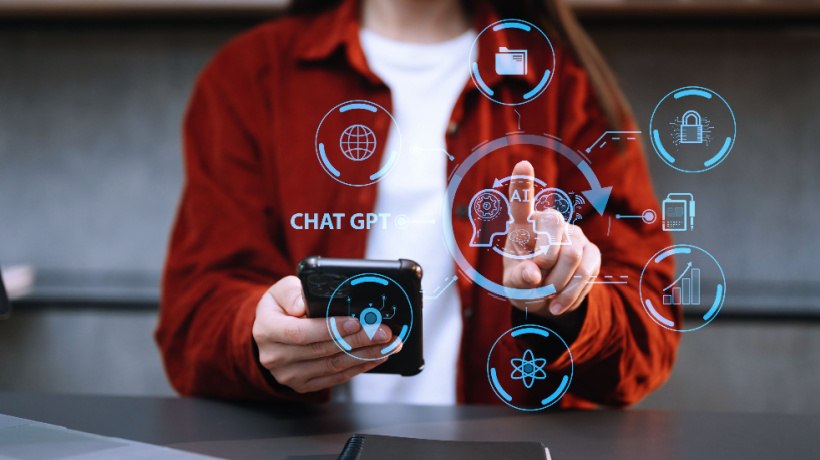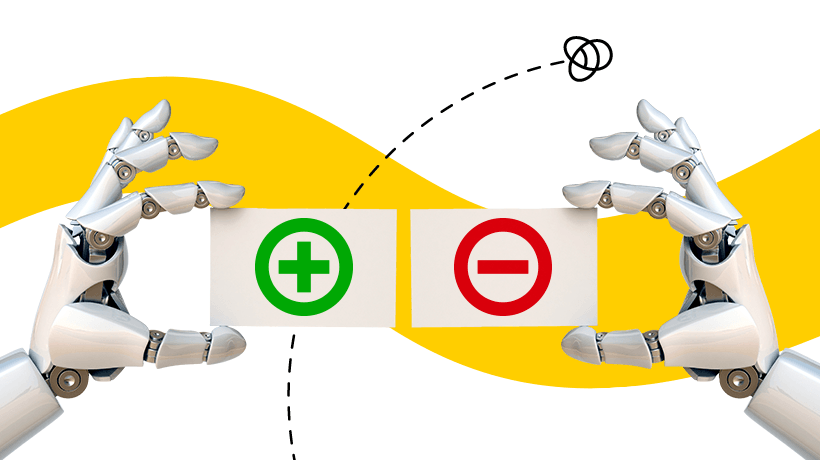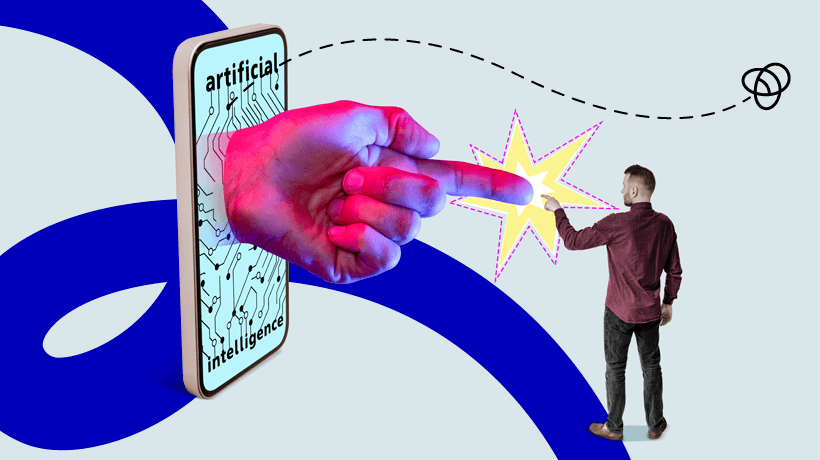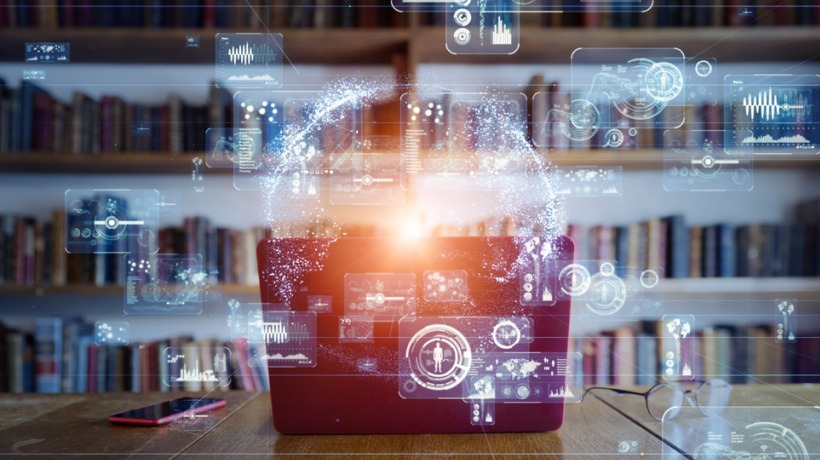Must-Know Pros And Cons Of AI Interviews For Employers
In recent years, Artificial Intelligence (AI) has been steadily gaining ground in the business world, gradually becoming an integral part of many different processes. The latest way it is being utilized by businesses is in the process of hiring new employees. We're not talking about the usual AI algorithms that sort through resumes to speed up candidate screening. This new trend involves AI bots interviewing candidates entirely on their own. Why are businesses choosing this approach, and how is it changing their hiring process? In this article, we will explore the main pros and cons of AI interviews that business leaders should know about.
What Is Contributing To The Rise Of AI Interviews?
There are many factors that are leading more and more businesses to turn to AI not only for interviews but also for many other steps of their recruitment and hiring strategy. Perhaps the one that stands out the most is the ability to save valuable time. More often than not, recruitment and hiring are time-consuming processes that may last numerous months before providing a satisfactory outcome. During those long months, teams tasked with finding new talent are swarmed by hundreds or thousands of applications that they need to sort through as efficiently as possible. Of course, this process is often interrupted by overlapping tasks and extraordinary responsibilities, not to mention fatigue and time off. Artificial Intelligence can automate and streamline the screening process so that no worthy application will fall through the cracks due to human error.
This promise of speed and consistency is what convinced business leaders that there are more ways in which AI can prove useful to them. Case in point, it is now starting to handle the interviewing process. Let's explore some of the advantages of AI interviews that can help you hire new talent.
Opportunities Employers Can Leverage
1. Better Use Of Recruitment Time
While recruiters and HR teams can conduct multiple interviews in a day, analyzing the data from each one can take much more time. Not to mention, it's often impossible to interview every single candidate whose resume looks interesting, which results in some candidates being rejected simply due to the workload. Companies that hire internationally may also struggle to schedule interviews because of time zone differences. An important pro of AI interviews is that they can address these issues by interviewing multiple candidates at any time of day and automatically extracting insights from these meetings. This enables recruiters to focus more on engaging with top candidates instead of spending time on unsuitable ones.
2. Consistency In The Hiring Process
In most cases, companies use a set list of questions and assessments to evaluate candidates' soft and hard skills, work experience, and other traits the company may be looking for. However, despite the standardized nature of this process, recruiters are only human and can be influenced by factors such as their mood, fatigue levels, and unconscious bias, leading them to make mistakes. These momentary lapses are certainly understandable, but they can negatively affect the results of the hiring process. In contrast, a well-designed AI interview will not forget to ask potential employees a question and will always judge their answers based on uniform criteria. This ensures a fair and objective interview process.
3. Objectivity
Speaking of objectivity, Artificial Intelligence has the potential to be free from the biases, conscious and unconscious, that may color a recruiter's opinion about a candidate. For example, it won't judge a candidate based on their gender or ethnicity, but rather focus on the actual skills they bring to the table. In fact, multiple companies have reported not only a faster recruitment process when they incorporate AI in interviewing or CV screening, but also a more diverse pool of candidates. This enables them to tap into talent from around the globe, ultimately helping them identify the best possible candidates for their open positions.
4. Reduced Costs
There are multiple ways in which AI interviews can help companies reduce their expenses. First and foremost, they significantly shorten the overall duration of the recruitment process. The faster companies find new talent, the fewer work hours they need to pay to recruitment teams, especially external ones. Additionally, AI interviews can reduce the need for large recruitment teams, thus decreasing salary expenses. Finally, the efficiency of an AI-powered recruitment process promises more successful hiring decisions, which means you don't have to waste additional resources to replace a newly hired employee who turned out to be a bad fit for the organization.
AI Interview Risks Employees Need To Be Aware Of
Despite the undeniable pros of AI interviews, there are still cons that you need to consider before incorporating them into your hiring strategy. Let's explore a few of them.
1. Lack Of Human Interaction
A significant con of AI interviews is the lack of human interaction, which cannot be replicated by technology. Job interviews are often an opportunity to showcase your company culture and start forming a relationship with potential new hires. Unfortunately, this can not be achieved when an AI bot conducts the interview. Another drawback is that, although AI is quite capable of assessing technical skills, it might struggle with soft skills. A human recruiter is much more likely to identify a strong communicator compared to AI. This could result in your company missing out on an employee whose stellar communication skills outweigh their less-developed technical knowledge.
2. Ethical Implications
As of this moment, there are several ethical concerns surrounding the use of AI in interviews. These range from personal data privacy and safety to the actual fairness of the overall hiring process. Regarding privacy, companies that utilize AI often store large volumes of sensitive information, which makes them attractive targets for cybercriminals. What's more, equality is not always guaranteed, as the AI algorithm that screens resumes, for example, may have been trained using data that was biased to begin with. Companies need to update their systems and undergo regular audits to ensure transparency, data integrity, and inclusivity.
3. Employee Perception
Even if companies that conduct interviews using AI do everything right, it is still difficult to predict or change how candidates will react to them. While some candidates may not mind this new interviewing trend and might even find it innovative, others may perceive it as impersonal and dehumanizing. They may wonder, "If a company doesn't take the time to meet me face-to-face, how much will they value me as their employee?" These factors may add up to a negative first impression of your company, which may deter applicants from returning for a second interview.
4. Technical Limitations
Similar to other emerging technologies, AI interviews require some fine-tuning to operate effectively. Instances have been reported of AI bots glitching during interviews, making it impossible for the candidate to participate or work out a solution, such as rescheduling the meeting. As it's natural, this can lead to a negative brand image, especially for companies in the tech industry. Whether these problems are a result of outdated technology or a lack of maintenance, it is essential for businesses to ensure that their automated interview systems are functioning properly and improving their hiring practices instead of harming them.
Find The Right Balance In AI Interviews
The discourse around AI interviews is particularly active, as there are numerous pros and cons to consider. What we can say with certainty is that Artificial Intelligence shouldn't be used to replace humans, but rather to support them. The abilities of AI can significantly enhance the efficiency and effectiveness of recruitment teams, as long as enough attention is given to maintaining systems to ensure proper operation, data privacy, and fairness. This way, you will be able to create an automated interviewing process that is effective for your company while also being pleasant and respectful to the candidates involved.
FAQ
During an AI interview, candidates interact with an AI bot that uses an algorithm to evaluate their performance based on responses to predetermined questions. While these systems assess the content (keywords and phrasing) of what candidates say, they often also assess the delivery, analyzing their tone of voice, clarity, and pace. Additionally, AI interview systems may use video analysis to gauge facial expressions and eye contact.
Regardless of the regulations that may be in place in your region, it is advisable to inform interviewees in advance that they will not be interviewed by a human. This is done to ensure transparency, allow candidates to prepare themselves, and build trust. If you are worried that candidates will decline interviews upon finding out about the AI involvement, reassure them that further communication and meetings will be handled by a member of the recruitment or HR team.
Currently, there is no reason to believe that AI will replace human recruiters. It may modify their role, but most companies opt for a hybrid approach that combines the capabilities of both AI and human resources. This way, they can achieve enhanced efficiency and effectiveness without sacrificing the irreplaceable elements of human judgment and empathy.
AI interviews are particularly useful for businesses that need to hire a large number of employees on a regular basis. This involves industries such as retail, customer service, tech, and more. However, we are seeing more industries adopting this practice, including healthcare and finance.
